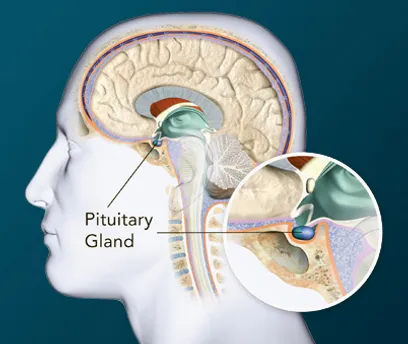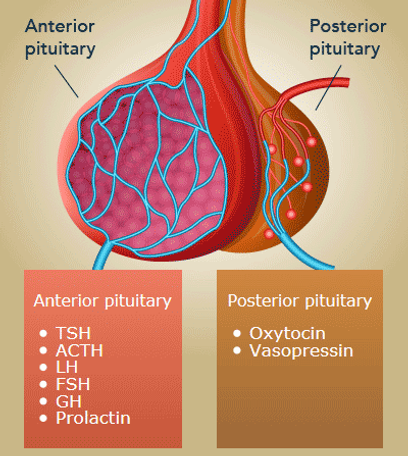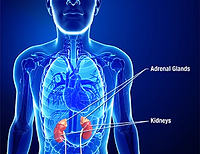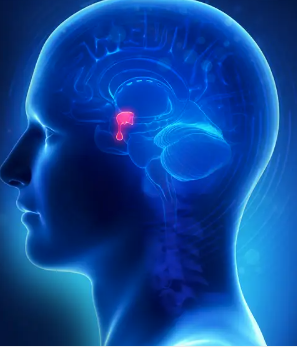PITUITARY GLAND FUNCTION
WHAT IS THE PITUITARY GLAND?
The pituitary is an endocrine (hormone-producing) gland that sits just beneath the base of the brain, behind the bridge of the nose. It is very small – only about the size of a pea. The pituitary gland is very important as it takes messages from the brain (via a gland called the hypothalamus) and uses these messages to produce hormones that affect many parts of the body, including stimulating all the other hormone-producing glands to produce their own hormones. For this reason, it is often referred to as the ‘master gland.’
The pituitary gland has two parts. The anterior (or front) pituitary produces hormones that affect the breasts, adrenals, thyroid, ovaries, and testes, as well as several other hormones. The main glands affected by the posterior (or rear) pituitary are the kidneys.

How Does the Normal Pituitary Work?
PRODUCES A NUMBER OF HORMONES
The pituitary gland produces a number of hormones. Hormones are essential for many aspects of life. Some send messages to other endocrine glands to tell them to increase or decrease production of their hormones. One such example is TSH, which stimulates the thyroid to grow and produce thyroid hormones.

The Main Hormones
PRODUCED BY THE PITUITARY ARE:
ACTH Adrenocorticotropic Hormone
ADH Anti-Diuretic Hormone, or Vasopressin
FSH Follicle-Stimulating Hormone
GH Growth Hormone
LH Luteinizing Hormone
PRL Prolactin
TSH Thyroid-Stimulating Hormone
VIEW DETAILED INFORMATION
VIEW ALL TERMS



